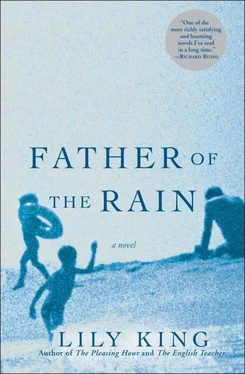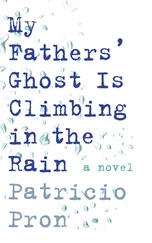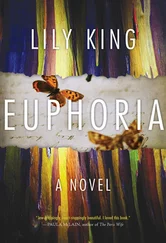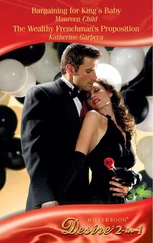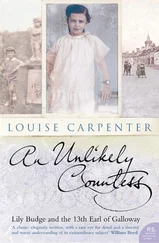“She sounds angry.”
“She was angry. Why? She had a comfortable life. Her parents left her plenty to live on.”
“Maybe she didn’t want a comfortable life. Maybe she wanted a challenging life. You’d shoot yourself if you had to be a smart woman in Dover, Massachusetts in 1930.”
We climb up between two high dunes. The ocean is darker over here, facing directly east, the waves more dramatic. I have read that at sea level the horizon is always only three and half miles away, but right now this seems impossible. I am stunned by the great empty blue enormity of it. After we’d had sex in my car that first time, Jonathan and I sat on the small gravel beach and debated why large bodies of water are so alluring. I said it was all about color, and he said it was space. No one could pave it or build on it or sell anything on it. It’s just a huge relief for our eyes, he said. But for me it’s something more. The water always seems to be saying something to me, urging something from me, though I never know exactly what it is.
“Why do you always do that?”
“Do what?
“Do what you just did with my mother.”
“What did I do with her?”
“Make it all be about her being a woman. It’s like what happened to that kid in Garvey’s class, David Stevens. You remember him? You probably wouldn’t. He wasn’t there long. Came in fifth grade, and then in seventh he cheated on a test and was given a warning. Next test, cheated again, and got kicked out. Parents made a huge deal about it, said it was because he was Jewish. No one knew he was Jewish! His name was Stevens, for chrissake. But for them, that was the reason. That poor kid never had to take responsibility for what he had done.”
I have a vague memory that there is more to the story, that there were two boys cheating and the other one had just been suspended, not expelled. But I don’t want to argue about the politics of Ashing Academy. “So you want me to just say, Wow, your mother was a basket case , and not look at why she might have been unhappy?”
“Don Finch’s mother was an appellate court judge. Shep Holliston’s was a doctor.”
“They were the exceptions.”
“So be an exception. Life’s not fair. It isn’t fair for you and it’s not fair for me. But if you say her life was awful because she was born a rich woman in the early twentieth century, I’m not going to shed any tears. Your generation seems to think men forced women to marry and shoved them in the kitchen. Let me tell you it wasn’t like that. We were the ones being railroaded into marriage.”
“Oh, come on, Dad.”
“It’s true. If you wanted to have sex with a decent girl.”
“From a good family.”
“Nothing wrong with that.”
“A girl you could take to the club.”
We’ve slid down the dunes and now walk along the beach, looking for a good spot.
“Listen, I don’t like all the whining your generation gets into.” He laughs. “Like that black woman last year who testified against the judge.”
“Anita Hill.”
“Anita Hill. What a beauty. Here she had an opportunity to see one of her own become a justice of the Supreme Court, and she threw herself down on the tracks. She comes out of nowhere to destroy him. First of all, do you really think an important fellow like that, a guy who had been working towards something like this his whole life, is really going to talk about a pubic hair on a can of Coke? And supposing he did, what would you do?”
“I have no idea.”
“I hope, I just hope, that you would get back to work.”
“Dad, Anita Hill didn’t come out of nowhere. When judges are nominated to the Supreme Court, they need references just like the rest of us, people who have worked with them and can answer questions about their character. So she told them what she knew. You could tell she didn’t enjoy it. But she had the courage to speak up and tell the committee that he consistently used his power over her to abuse her and oppress her with a barrage of pornographic language.”
“Sticks and stones.”
“Words are just as damaging, Dad.”
“People shoot the shit at work. If women can’t handle it, they should stay home.”
“Sorry. We’re not going to be herded from the workplace anymore. Women have been kept at home as slaves long enough.”
“That all sounds pretty, but are you a slave? Are your hands bound?”
“Not—”
“Just answer my question. Are you in chains right now?”
“No.”
“Do you have the right to free speech, to vote for the candidate of your choice, to pursue the career you want? Did you have trouble excelling in school because you were a woman? Did you get passed over for that professorship because you were a woman?”
“No, we’ve made progress but—”
“All right then.” He stops walking. “What’s in that picnic basket?”
We eat everything I’ve packed: chicken sandwiches, potato chips, watermelon slices.
“I tell you, Daley. Everyone’s always talking these days about advantages and privileges. Well, it only gets you so far. You know who’s had all the advantages and privileges I can think of?”
I know, but I shake my head.
“Garvey. He’s had ‘em all. Good schools, good breeding, good everything, and look at him.”
“I don’t want to talk about Garvey.”
“All I’m saying is that the guy will be lucky to get into the Rotary Club someday.”
“There’s absolutely nothing wrong with Garvey and I think you know that. It’s too bad you had such a specific idea of who he should be.”
My father sits on his towel, tall pointy knees up near his shoulders, pouring sand onto a piece of cellophane. A family nearby has gone swimming and the gulls are pecking at their open box of saltines. “You know,” he says, “when Garvey was in the fourth form, he won a prize for a short story. Your mother and I went to this big event and all the runners-up read their stories and then Garvey gets up there last. His tie is crooked, his shirt untucked, and he reads the most boring godawful thing you’ve ever heard in your life about these people going to a cocktail party. Somebody passed around a flask of gin and thank God for that.”
“What happened in the story?”
“Nothing! I couldn’t understand for the life of me how it won first prize.”
“What did Mom think?”
“Oh, Garvey was the Christ child to her. He could do no wrong.”
I smile. She would have understood that the story had been a satire.
“Did you like St. Paul’s, Dad, when you were there?”
“Yeah, it was all right. Except for the religion. Chapel every five minutes.”
“Do you see any of your friends from there?”
“No. They all went to New York or someplace. I was in touch for a while with my tennis coach, who was also my history teacher, though I didn’t do so well in his classes. He was a friend, young guy at the time. But then I saw him in Boston once and that was it.”
“What do you mean?” I picture a sexual advance, a hand placed on my father’s thigh.
“He called me up and told me to meet him at a fancy French restaurant and when the check came he just let me pay. A hundred bucks for two people, which was a hell of a lot of money then. He calls me, chooses the restaurant, and then has me pay for the whole thing. I never spoke to him again. He was a good guy, though. Great player. But that whole thing was a setup.”
I can feel how open he is. It’s like I could ask him anything. “Did your mother drink?”
He nods. “Even though Nora was sick that week on the island, every night she had to get up and help my mother to bed.”
“Do you think it started when your father died?”
Читать дальше
